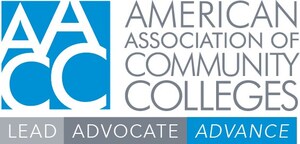TEMPE, Ariz., April 18, 2024 /PRNewswire/ -- The following is written by Dr. Steven Gonzales, Chancellor, Maricopa Community Colleges, a member of the American Association of Community Colleges.
For millions of Americans, community colleges have long been the entry point to higher education, bridging the gap between high school and the workforce or transferring to a university or college. Community colleges exemplify flexibility and practicality, offering a là carte workforce development training, professional certificates, associate degrees, transfer programs and now bachelor's degrees at some community colleges.
Integrating bachelor's degree programs within community colleges provides students with more choices, increases educational attainment, aligns curriculum with local workforce needs, and ensures a more inclusive path to higher education for everyone.
Community colleges remain synonymous with affordability and provide students with accessible and attainable solutions to achieve their post-secondary education goals. According to NerdWalllet, the total student loan debt is $1.74 trillion, leaving millions of Americans drowning in debt whether or not they graduate with a degree. As tuition continues to soar across our nation at four-year public and private universities and colleges, we must work together to ensure that access to higher education remains diverse, inclusive, equitable and, most importantly, affordable.
With less than half of the states across our nation allowing some, but not all, community colleges to offer bachelor's degree programs, as educators, we must continue to have open dialogue and meaningful conversations with changemakers centered around providing additional cost-effective learning opportunities that can significantly ease student loan debt for students and provide greater access to underserved students.
One solution to America's student loan crisis is allowing more community colleges the ability to offer affordable baccalaureate degrees in high-demand professions.
As chancellor of the Maricopa County Community College District (MCCCD), with 10 colleges and 31 satellite locations, I am proud to share that we have seen an overwhelming response with 2,713 students enrolled in our inaugural bachelor's degree programs that launched in Fall 2023. Many of the seven programs are at or hitting their target enrollment goals.
In the coming years, we will continue to develop innovative offerings that address critical workforce needs, including Registered Nurse to Bachelor of Science in Nursing later this fall and Bachelor of Science in Artificial Intelligence and Machine Learning, Business Administration-Accounting and Business Administration-Management in 2025.
A highly enticing draw to our bachelor's degree programs is the tuition cost of $145.50 per credit hour for 300-and 400-level courses. Our tuition is one-third of the cost of attending one of the three public universities in Arizona.
Most importantly, Maricopa Community Colleges accept the top 100% of all students who apply. By pursuing a bachelor's degree at a Maricopa Community College, students can take advantage of low or possibly no student loan debt when they graduate. In addition to affordability, community college bachelor's degrees offer students benefits such as smaller class sizes with more direct instruction and the opportunity to complete their bachelor's degree with the same exceptional faculty that they began their education with.
I know each state's law regarding the bachelor's degree programs community colleges can offer is different. According to Arizona law, community colleges offering bachelor's degrees must demonstrate both a workforce need and student demand — while also not unnecessarily duplicating programs already offered by traditional universities in our county. Therefore, we have strategically developed our programs to provide a more detailed focus and fill targeted needs to alleviate Arizona's workforce shortages in critical, high-demand industries.
In recent years, the Grand Canyon State has seen significant declines in professionals entering into healthcare, information technology, K-12 education and public safety. Workforce shortages across these essential sectors strain our communities and leave Arizona employers struggling to find and hire qualified employees. As Arizona continues to prioritize filling critical high-demand professions, MCCCD is bridging the gap by providing students with viable choices and high-quality education at an affordable cost.
Community colleges have proven that academic excellence and innovation are not exclusive to traditional four-year institutions. If more states embrace the community college baccalaureate degree model, a bachelor's degree can be within reach for millions of Americans, especially first-generation college students, students of color, and the unique population of those with some college, and no credential.
The impact of community college bachelor's degrees reaches far beyond individual attainment. In Arizona alone, increasing college enrollment by 20% has the potential to create more than $5 billion in economic gains for the state each year. As we look ahead, it's clear that expanding community college baccalaureate programs is a strategic investment in our students, the growing workforce, and economic vitality.
Uniquely American, community colleges serve more than 10 million students annually, providing critical access to higher education in academic and workforce development. As the voice of the nation's community colleges, the American Association of Community Colleges (AACC), delivers educational and economic opportunity for more than 10 million diverse students in search of the American Dream. Uniquely dedicated to access and success for all students, AACC's member colleges provide an on-ramp to degree attainment, skilled careers, and family-supporting wages. Located in Washington, D.C., AACC advocates for these not-for-profit, public-serving institutions to ensure they have the resources and support to increase economic mobility for all. https://www.aacc.nche.edu/
SOURCE American Association of Community Colleges

WANT YOUR COMPANY'S NEWS FEATURED ON PRNEWSWIRE.COM?
Newsrooms &
Influencers
Digital Media
Outlets
Journalists
Opted In



Share this article